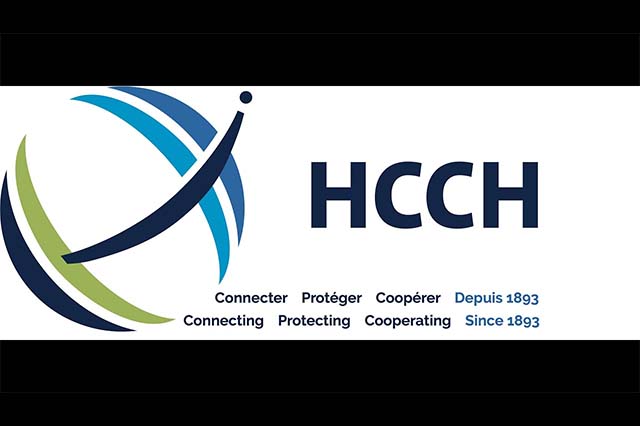
The logo of the Hague Conference on Private International Law
The Hague apostille is a procedure that, in the field of private international law, allows a document to be legalized by verifying its authenticity . This method emerged in 1961 and is accepted in many countries.
The Hague Conference
The Hague apostille was agreed by the Hague Conference on Private International Law , an international organization whose headquarters are located in the aforementioned city in the Netherlands . This organization is also known by its acronym, COHADIP .
The Hague Conference has dozens of members; By 2021, the number rose to eighty-nine, of which eighty-eight were States and the remainder was the European Union , which is considered an international organization.
Its purpose is to develop multilateral legal instruments that make it possible to satisfy global needs. To do this, they carry out homologation tasks thanks to which a standard valid in a single country is acquired in others. Since its inception, it has had more than thirty international conventions, of which those aimed at conflicts of legislation that concern, among other topics, traffic accidents on public roads, the property regime of marriage, the obligations related to the food of citizens, civil liability and succession due to death.
Some of the more than eighty States that are part of the Hague Conference are the following, arranged alphabetically: Germany, Australia, Belgium, Brazil, Canada, China, Croatia, Denmark, Egypt, Spain, United States, Finland, France, Greece, Ireland, Italy, Japan, Netherlands, United Kingdom, Russia, Switzerland and Venezuela .
Usefulness of the apostille
The Hague apostille , in this framework, aims to facilitate the use of public documents in foreign nations . What it does is eliminate the obligation of the legalization process , replacing it with a certificate issued by a competent authority in the same country where the document in question was issued.
This certificate is the apostille . This is a sheet that is added to the document, with the signature and seal of the authority that validates the copy of the public document. Since 2006 , there has also been an electronic apostille program that makes it possible to issue and verify apostilles digitally.
Let's take the case of Argentina , which is part of the Hague Conference . The Ministry of Foreign Affairs, International Trade and Worship has an online system to internationally certify and validate documentation. In this way, with the Hague apostille , citizens ensure that their documents comply with legality requirements both nationally and abroad.
This can be especially useful when traveling to another country with the intention of looking for work with your own qualifications and academic achievements , or even to continue studying. Without the Hague apostille, a university degree from Argentina is not valid in Spain, for example, regardless of the grades obtained. This does not mean that it does not serve as a reference when conducting a job interview, but rather that it cannot be used as current documentation, so if its achievement is one of the requirements to access the position, the company cannot accept it.

Landscape of the Dutch city of The Hague
electronic apostille
As mentioned above, there is an electronic version of the Hague apostille, which is available in several countries. This means that both its obtaining and its verification are done by digital means.
Given the absence of a paper stamped by an official body, verification of authenticity of an electronic apostille must be done in a program that requires a secure verification code ( CSV ) along with the file number and the date on which it was issued. the apostille was issued.
